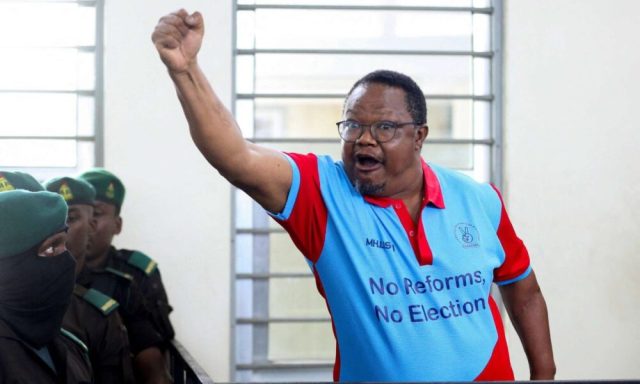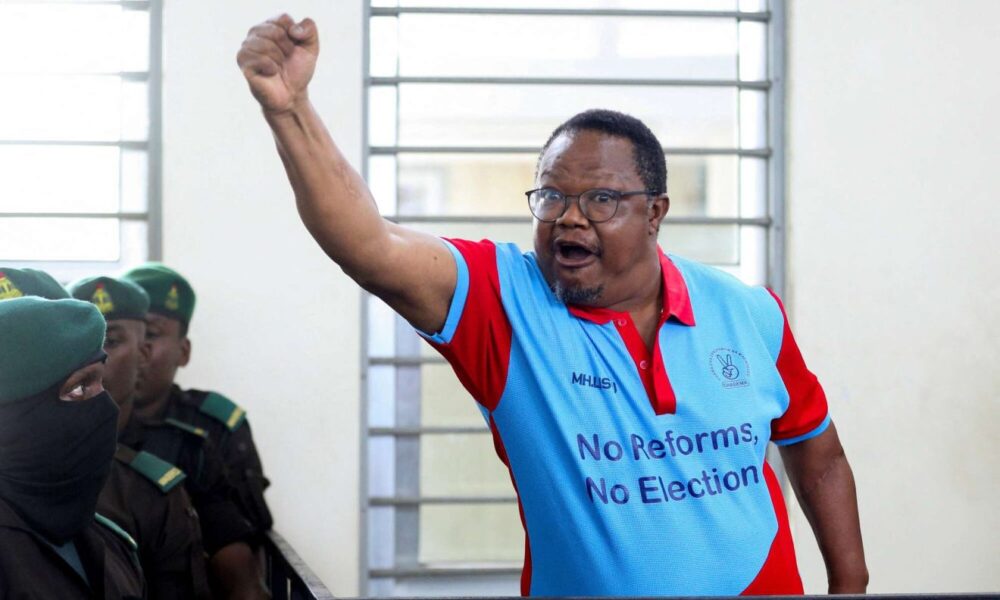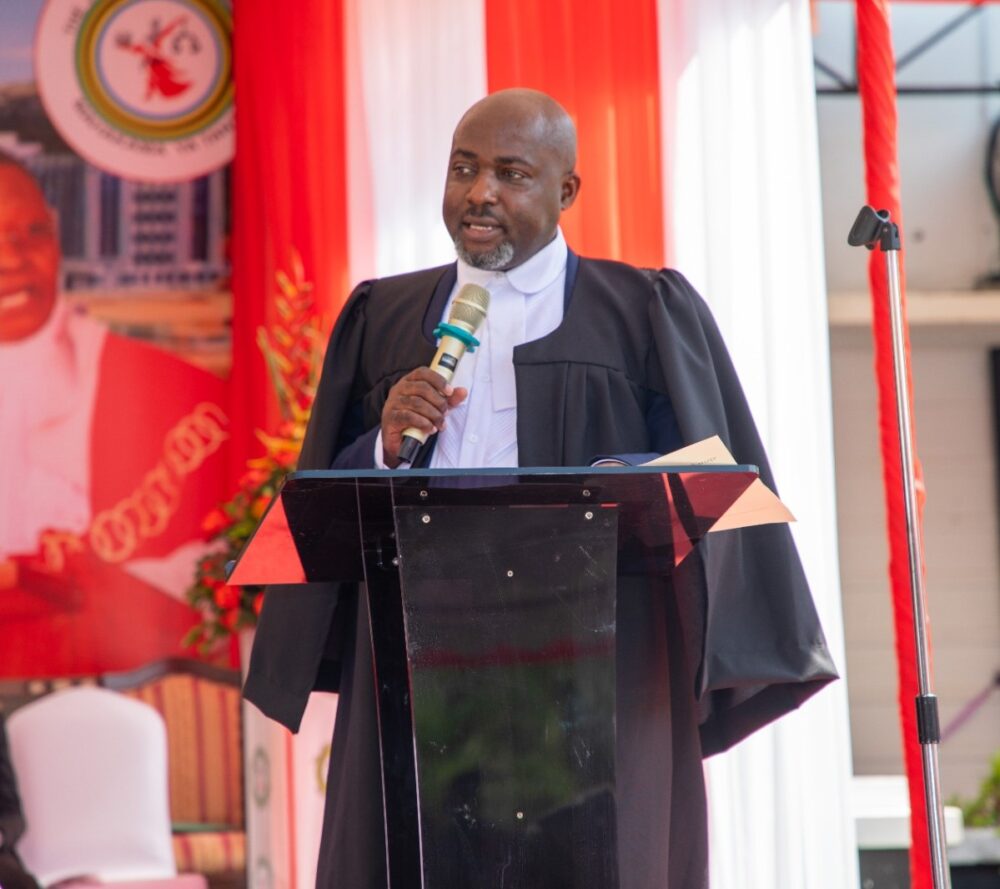
Tanzania heads to presidential, parliamentary and local government elections on 29 October with the absence of constitutional reforms casting a long shadow over the country’s democratic journey. The 2025 vote risks becoming yet another contest staged on an uneven playing field that favours the ruling Chama Cha Mapinduzi (CCM).
A total of 36.7 million Tanzanians are registered to vote, and 16 presidential candidates have been cleared to challenge incumbent President Samia Suluhu Hassan. Yet the political environment has been dramatically altered by the absence of the main opposition party, Chama Cha Demokrasia na Maendeleo (Chadema), which has opted out after refusing to sign electoral regulations prepared by the Independent National Electoral Commission (INEC).
Chadema’s chairperson, Tundu Lissu, was arrested while speaking at a rally and several of his supporters were arrested and beaten.
The second-largest opposition force, Alliance for Change and Transparency (ACT-Wazalendo), which shares power in Zanzibar, will also appear weakened. Its Union presidential candidate, Luhaga Mpina, was disqualified by the INEC following objections from the attorney general. The disqualification left ACT without a presidential standard-bearer, even as the party campaigns vigorously for Zanzibar presidency, parliamentary and council seats.
The fragmented political landscape has been defined by competing slogans that reveal deep divisions. Chadema and its allies, including sections of the clergy, insist on “No Reforms, No Election”. ACT-Wazalendo urges its members to “Protect Your Vote” while the CCM projects confidence with its rallying cry: “October We Are Ticking.”
At the heart of the dispute is the unresolved question of constitutional and electoral reforms. Critics argue that the 1977 Constitution, crafted during the single-party era, entrenches executive dominance and denies voters genuine choice. Key provisions — including the president’s sole authority to appoint electoral commissioners, the inability to challenge presidential results in court, and the use of civil servants to supervise elections — are seen as tilting the field in the CCM’s favour.
Tanganyika Law Society (TLS) president Boniface Mwabukusi believes the outcome of the October election cannot be regarded as free or fair under these conditions. He recalls the controversies of the 2019 local elections, the 2020 general elections, and the 2024 local polls, when large numbers of opposition candidates were disqualified or arrested, leaving the CCM to dominate unchallenged.
For Mwabukusi, reforms are needed to open the political space. He points to the need for an independent electoral commission, judicial review of presidential results, and transparency measures such as allowing party agents to use cellphones during vote tallying. Without such changes, he warns, Tanzania risks sliding into managed democracy rather than genuine multiparty competition.
Even in the CCM, there are voices sympathetic to reform. Former MP Bishop Josephat Gwajima and former ambassador Humphrey Polepole have called for changes before the polls. Their criticism reflects a recognition that uncompetitive elections, while preserving the CCM’s dominance in the short term, erode public trust in institutions over the long run.
Chadema’s Lissu, currently facing treason charges in the high court, has gone further. He has suggested that the government should consider extending its mandate by two or three years to allow for comprehensive constitutional reform before holding elections. For Lissu and his supporters, participating in the 2025 polls without reform would legitimize a flawed system.

The Global Democracy Index 2023 published by the Economist Intelligence Unit described Tanzania as the top democratic country in East Africa.
But the reform debate is not new. Since Tanzania embraced multiparty politics in 1992, opposition parties have consistently complained about the dominance of the CCM and the bias of state institutions. Every general election since 1995 has been marred by disputes over transparency, access to media and the role of security forces.
In 2014, then president Jakaya Kikwete initiated a constitutional review process that generated broad public interest. The proposed draft constitution included provisions for stronger checks and balances, an independent electoral body and greater protection for civil liberties. But political disagreements resulted in the draft being shelved.
John Magufuli, who came to power in 2015, prioritised economic transformation over political reforms, sidelining the constitutional debate. His government was marked by mega-infrastructure projects and anti-corruption campaigns, but also by shrinking democratic space, with bans on rallies, restrictions on media and harassment of opposition leaders.
When Magufuli died in 2021, Samia Suluhu Hassan inherited both his ambitious economic agenda and his authoritarian political legacy. Many expected her to revive constitutional reforms. Although she opened diplomatic space and eased some restrictions, comprehensive political reforms have not materialised.
Suluhu’s four years in office have been defined by a balancing act of 4R (reconciliation, resilience, reform and rebuild). On the one hand, she has pursued a pragmatic approach to governance, re-engaging with international partners and restoring Tanzania’s credibility abroad.
Her government has secured financing from the World Bank and International Monetary Fund, channelled toward climate resilience, social welfare and budget support. She has also overseen progress on the Standard Gauge Railway, road and port expansions, and improvements in electricity and water supply.
But her administration has faced criticism for failing to address democratic deficits. While she lifted some of Magufuli’s restrictions — such as reopening banned media outlets and allowing limited opposition activities — critics say these measures have been inconsistent and easily reversed.
Her government has also struggled to convince people that opposition parties will be given a fair chance. Arrests of opposition leaders, ongoing court cases and strict oversight of civil society groups suggest that the state remains wary of dissent.
In her campaign rallies, Samia said that if she wins, she will revive the processes to make a new constitution and undergo political reconciliation within 100 days after being sworn in.
Civil society organisations complain of increasing restrictions on their activities, particularly in areas such as voter education, election monitoring and advocacy for marginalised groups. International NGOs report difficulties in registering projects related to governance and human rights. Social media platforms are closely monitored, with activists being harassed for critical commentary.
These developments highlight the gap between Suluhu’s reformist rhetoric and the reality of a political environment still shaped by state control. For many citizens, especially the youth, the contradiction is stark. While economic initiatives have created opportunities, political freedoms remain limited, fuelling disillusionment.
To her credit, Suluhu has delivered on several fronts. The commissioning of the Standard Gauge Railway between Dar es Salaam and Dodoma represents a transformative achievement, promising to enhance regional trade and domestic mobility. Expanded roads and upgraded ports are expected to support industrialisation and job creation.
Her administration has also emphasised financial inclusion, expanding access to banking and mobile money services. Small and medium enterprises have benefited from new credit facilities, while digital platforms are being developed to enhance tax collection and public service delivery.
In health and education, the government has strengthened vaccination programmes, invested in new hospitals and introduced digital learning initiatives. These measures reflect an ambition to build a more inclusive and resilient society, even if the benefits have not yet been evenly distributed across the country.

As October approaches, Tanzania faces several outcomes. If the CCM maintains its dominance, policy continuity is assured and economic programmes will proceed with minimal disruption. But such a scenario risks entrenching central authority and limiting democratic participation, eroding public trust over time.
If smaller opposition parties make gains, a more pluralistic environment could emerge, enhancing accountability and representation. Yet the absence of Chadema from the ballot and ACT’s weakened position mean that any opposition gains may be fragmented and insufficient to challenge the CCM’s majority.
The credibility of the election itself will carry significant weight. A transparent and inclusive process could attract further foreign investment and strengthen Tanzania’s reputation as a stable partner in the region. Conversely, a disputed or exclusionary process could trigger domestic unrest and draw criticism from international partners.
Beyond the ballot, Tanzania has enduring problems. Youth unemployment is a pressing issue, with millions of young people entering the labour market each year without sufficient opportunities. Rural areas continue to lag in infrastructure, education, and healthcare compared to urban centres, perpetuating inequality.
Corruption and mismanagement, though less visible under Suluhu, remain sources of frustration for citizens who demand accountability. Without stronger institutions, these issues could undermine both economic progress and political stability.
The 2025 general election represent more than a transfer of political power. It is a defining moment in Tanzania’s democratic journey, testing whether the country can reconcile its tradition of political stability with demands for greater pluralism, transparency and accountability.
Suluhu’s record of economic achievement and international engagement stands alongside persistent criticisms of restricted democratic space and the absence of constitutional reform. The choices made in this election will determine whether Tanzania moves toward deeper democracy or consolidates a model of controlled stability.
A credible election could reinforce democratic norms, attract investment, and foster national cohesion. A flawed one could fuel tensions, weaken institutions, and tarnish the country’s international standing.
Ultimately, the 2025 vote poses a fundamental question: will Tanzania embrace the participatory spirit of multiparty democracy, or will it continue along the path of centralized governance under the CCM? The answer will shape not only Suluhu’s legacy but also the trajectory of Tanzanian democracy and development for decades to come.
As Tanzanians prepare to cast their votes, the eyes of the nation — and the international community — are fixed on whether the promise of reform will finally be realised, or whether the struggle for a more inclusive democracy must continue beyond 2025.
Government critics abducted, the main opposition leader detained and the presidential candidate for the second largest opposition party disqualified indicate a government crackdown before the election




